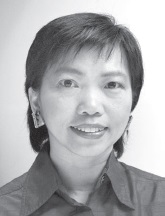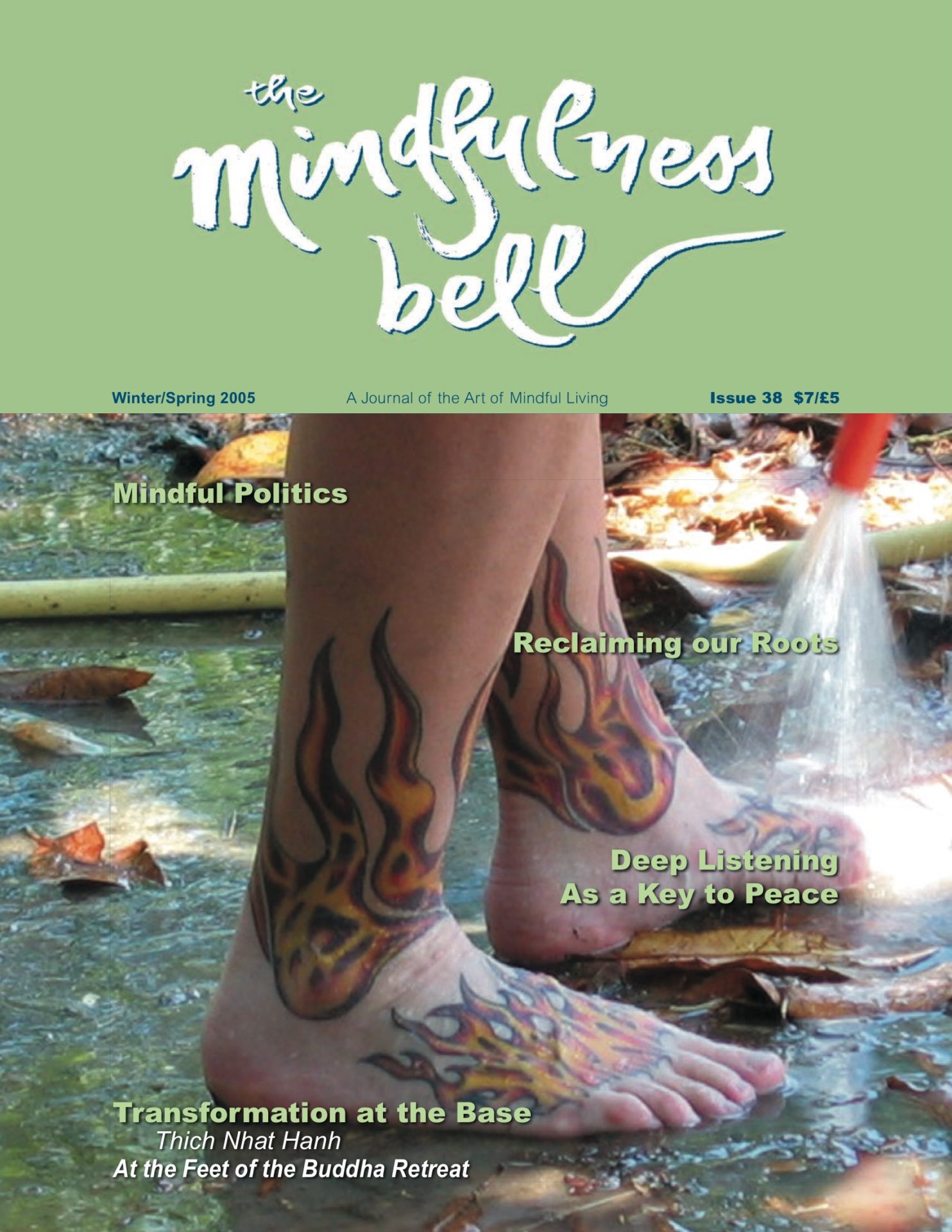By Nancy Hom
Note: this article comes from Spoken Like a True Buddha, a compilation of stories about mindfulness practice in everyday life, edited by Carolyn Cleveland Schena and Sharron Mendel.

Death, and the notion of aging, has always hung over me like a heavy cloud. I have sought ways of avoiding the topic, such as staying away from hospitals, funeral parlors,
By Nancy Hom
Note: this article comes from Spoken Like a True Buddha, a compilation of stories about mindfulness practice in everyday life, edited by Carolyn Cleveland Schena and Sharron Mendel.

Death, and the notion of aging, has always hung over me like a heavy cloud. I have sought ways of avoiding the topic, such as staying away from hospitals, funeral parlors, and nursing homes. But here I find myself visiting my mother, recently confined to a home. All around me, I hear death hissing through the clang of bedpans and squeals of wheelchairs, through the endless drone of catatonic dining companions. Amid the vacant eyes of childlike faces, the tired bodies draped before the dinner trays, my mother sits facing me. She glances at the gift of oranges I have brought her and nods her approval.
I have come 3,000 miles to be with her, but silence forms a wall between us now. Advanced Parkinson’s has already claimed her voice. Her legs, long withered, dangle uselessly. I wheel her into her small room, still stupefied by the disease that chains us both to these white walls away from life.
My mother’s eyes are luminous, glistened pearls. Once they flashed indignantly at the thought of being in a nursing home, then accusingly, then beseechingly. Now they simply look at me with resignation. Sometimes they stare into a far off place.
I watch her helplessly as the minutes tick by. My mind races to fill the space taken up by silence. I think of meetings missed, the dinner not yet eaten, the bus and train I have to take in the cold windy night. I think, If only she had been diagnosed earlier, if only I didn’t live so far away. Then hope, not guilt, would be a visitor. I remember the warmth of her back when she carried me, my small arms wrapped around her like a shawl. How, when I was red with fever, she rocked my blistered body until I fell asleep. The hot nights on the rooftops of Kowloon eating watermelon seeds and watching the neon lights twinkling in the streets below. The first days in America, when I clung to her like a shadow. The dark times, too, when I cowered in a corner before her wrath. These thoughts I hold onto like photographs in an album, stilled images of the mother I no longer have access to.
She points a gnarled finger at the orange I had left on her table. I peel it carefully, glad to have something to do. A spray of citrus fills the air and her eyes widen like a child anticipating sweets. I hand her a slice, which she grasps unsteadily. She brings it painstakingly to her mouth and sucks with soft smacks. I eat my slice too, squeezing the little beads of juice with my teeth until the flavor bursts over my tongue like a rainshower.
Oranges were always around in our house when I grew up. They cleansed the palate after every dinner; topped pomelos on New Year’s altars, were the calling cards of visitors who always brought the fruit as a gift to the host. To me they were heavy sacks of obligation during holidays and weekends, when my mother and I wended our way through tenement buildings to visit fellow immigrants from China. The tables were littered with melon seeds and orange peels as I waited impatiently while my mother and her friends chatted; conversations I found hard to relate to, preferring instead to bury my head in a Nancy Drew book while they reminisced about the old village.
Now this bright leather-skinned fruit is the only bridge between us. We eagerly suck the memories the piquant flavor evokes. The tart vapors tickle our nostrils. I can see from my mother’s twitch of a smile that she remembers, too. She chews slowly, savoring each bite, as if the thoughts will fade away as soon as the orange is eaten and more slices of her life will peel away.
We finish the whole orange. She belches in satisfaction. I wipe her chin; then we sit and gaze at each other. There are so many words that will never get spoken; dreams that will stay unfulfilled; regrets that are etched in our skins like birthmarks. But in this moment it does not matter what I want her to be, what she used to be, or what I fear she is becoming. There is only the room, the faint scent of oranges, and us, breathing in unison.
If I cease my mind’s constant chatter and look deeply, I see that she is still here, still my mother. She is different and she is the same. She will be here after her body has deteriorated. She will be in the air I breathe and in the earth I touch. Her brightness will shine through her children’s eyes, and those of their children. Although I have a long way to go with my practice, this fleeting insight becomes stronger whenever I stop my thoughts long enough to see my mother as she truly is instead of what I want her to be, what she used to be, or what I fear she is becoming. We sit and breathe together. In this moment is the whole of our lives.
Nancy Hom lives in San Francisco. Her experiences as an immigrant, a mother, a community leader, and spiritual seeker provide the framework for her visual and literary pursuits.

